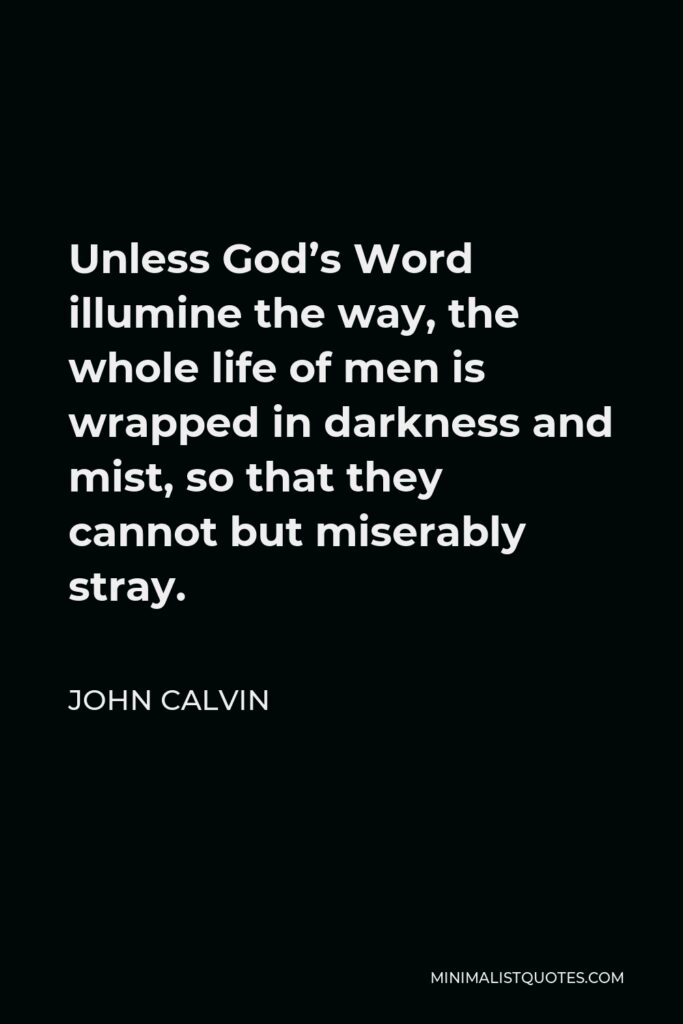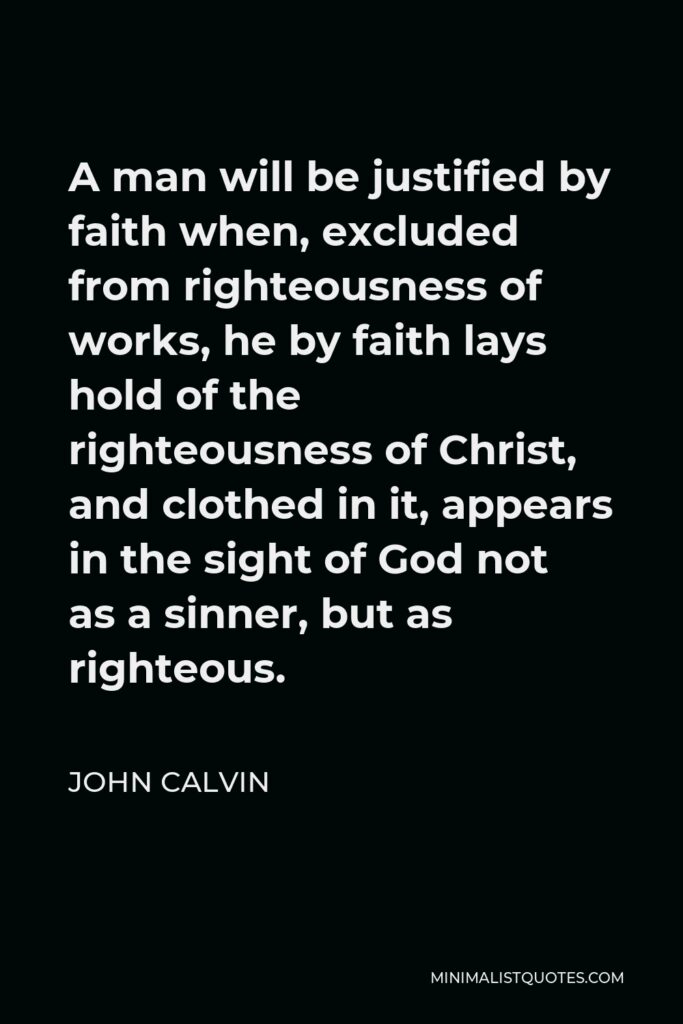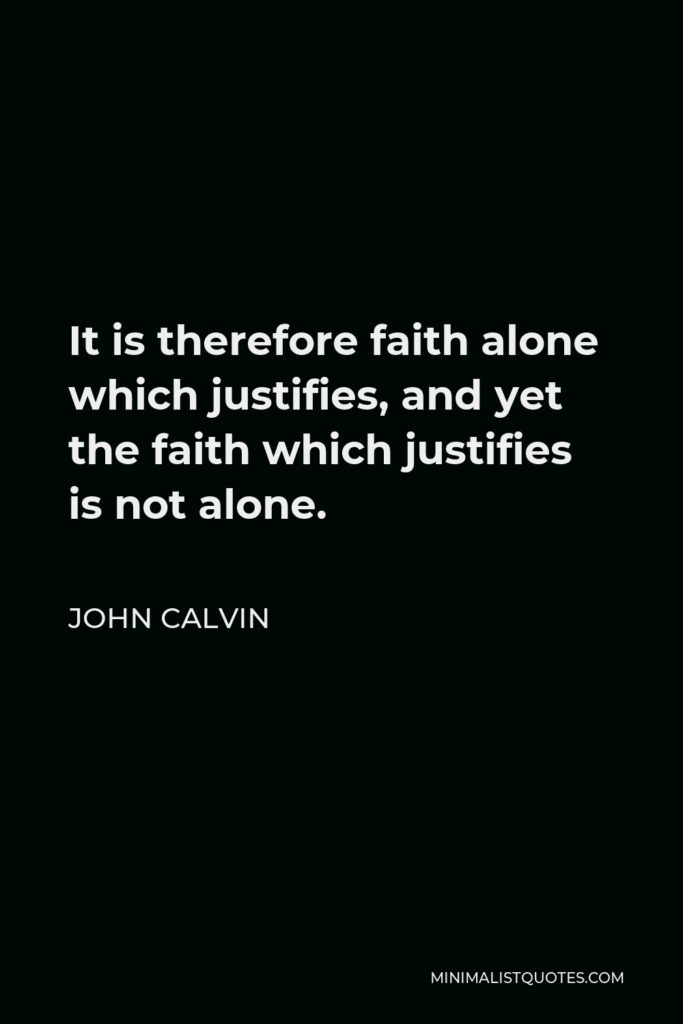Whoever is not satisfied with Christ alone, strives after something beyond absolute perfection.
JOHN CALVINThe first part of a good work is the will, the second is vigorous effort in the doing of it. God is the author of both. It is, therefore, robbery from God to arrogate anything to ourselves, either in the will or the act.
More John Calvin Quotes
-







-







We should never insult others on account of their faults, for it is our duty to show charity and respect to everyone.
JOHN CALVIN -







Sometimes it seems things go by too quickly. We are so busy watching out for what’s just ahead of us that we don’t take the time to enjoy where we are.
JOHN CALVIN -







We should ask God to increase our hope when it is small, awaken it when it is dormant, confirm it when it is wavering, strengthen it when it is weak, and raise it up when it is overthrown.
JOHN CALVIN -







If God does nothing random, there must always be something to learn.
JOHN CALVIN -







There is no worse screen to block out the Spirit than confidence in our own intelligence.
JOHN CALVIN -







Human will does not by liberty obtain grace, but by grace obtains liberty.
JOHN CALVIN -







Unless God’s Word illumine the way, the whole life of men is wrapped in darkness and mist, so that they cannot but miserably stray.
JOHN CALVIN -







When God designs to forgive us he changes our hearts and turns us to obedience by His Spirit.
JOHN CALVIN -







A man will be justified by faith when, excluded from righteousness of works, he by faith lays hold of the righteousness of Christ, and clothed in it, appears in the sight of God not as a sinner, but as righteous.
JOHN CALVIN -







But those who wish to prove to unbelievers that Scripture is the Word of God are acting foolishly, for only by faith can this be known.
JOHN CALVIN -







Whomever the Lord has adopted and deemed worthy of His fellowship ought to prepare themselves for a hard, toilsome, and unquiet life, crammed with very many and various kinds of evil.
JOHN CALVIN -







There is no knowing that does not begin with knowing God.
JOHN CALVIN -







You must submit to supreme suffering in order to discover the completion of joy.
JOHN CALVIN -







We must remember that Satan has his miracles, too.
JOHN CALVIN -







It is therefore faith alone which justifies, and yet the faith which justifies is not alone.
JOHN CALVIN








